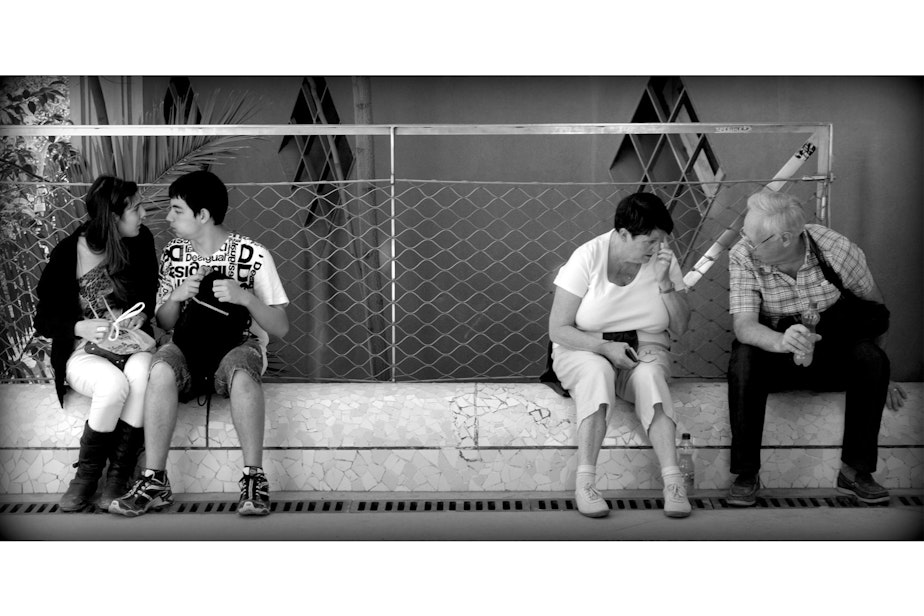Why separating age groups is a 'grievous wound' for our society

Half the kids born in the developed world since 2000 are projected to live to be 100 years old.
That means a society with four or five generations of people alive at the same time. But that doesn't mean they're living together, according to author Marc Freedman.
Freedman says our culture divides the age groups in ways that are detrimental to everyone.
Freedman, the the author of "How to Live Forever: The Enduring Power of Connecting," spoke with KUOW's Bill Radke about why getting the generations together is so important for the health and happiness of both younger and older people.
Marc Freedman speaks on KUOW's The Record on December 10, 2018.
Interview highlights
Sponsored
On the interdependence of the generations
Developmentally, older and younger people need each other. The great child development scholar Urie Bronfenbrenner at the end of this career – he was the cofounder of the Head Start program, really founded much of the child development field of study in the United States – was asked, ‘What do kids need?’
And he said, ‘What every child needs is at least one adult who is irrationally crazy about them.' And the studies have shown that kids who have made it against the odds have had that kind of supportive village community with older people playing a key role.
And it turns out that the parallel studies of happiness in later life show that older people need to be irrationally crazy about young people.
Older people who mentor and connect with the next generation are three times as likely to be happy as those who fail to do so.
Sponsored
On why we fail to value older people in our society
Well, partly we’ve thwarted something natural, essentially rerouted the river of life and split the generations apart in a radical way. A hundred years ago we were the most age-integrated society in the world.
People worked together on farms of all ages, they lived in multigenerational households, even one-room school houses had people in their 30s and 40s learning next to children.
And in the course of one century we have produced something that could be described as age apartheid.
It’s understandable that we did that: We created this sense of life where young people were in schools, middle people were in workplaces and older people were in places like senior centers and retirement communities. But it was a false efficiency.
This radical age segregation is a self-inflicted wound – a grievious one – that we’ve perpetrated over the last century because people of different ages need each other. Erik Erikson, the great scholar of human development, said that the hallmark of successful development in later life can be encapsulated in the phrase 'I am what survives of me.'
Sponsored
And he said when we split older and younger people and people in the middle apart from each other, you lose a sense of a wholeness of life, which I think is part of the reason why we’re so afraid of death, so afraid of becoming frail.
In the spirit of efficiency we created these institutions which group people in peer context, but we lost something essential in the process.
On what to do about it
We could start bringing together and age-integrating the institutions of daily life.
There’s a spectacular example here in Seattle, there’s a documentary about it called “The Growing Season,” it’s at the Providence Mount St. Vincent assisted living in Seattle which has a preschool in it and older people and younger people who aren’t related by blood, but form powerful connections nonetheless.
Sponsored
We need to create a society, since we are becoming this multigenerational society – four, five generations are going to be alive at the same time as people live so much longer – where we create more natural contact between older and younger people, because there’s so much mutual benefit in that connection.
Of all the things that potentially divide us, this is the most bridgeable. Because those young people are going to be those old people – faster than they know!
This all just a part of the cycle of life. As we get closer to the end phases of life, we have a responsibility, but we also have a powerful instinct, to nurture the next generation.
Produced for the web by Kara McDermott




